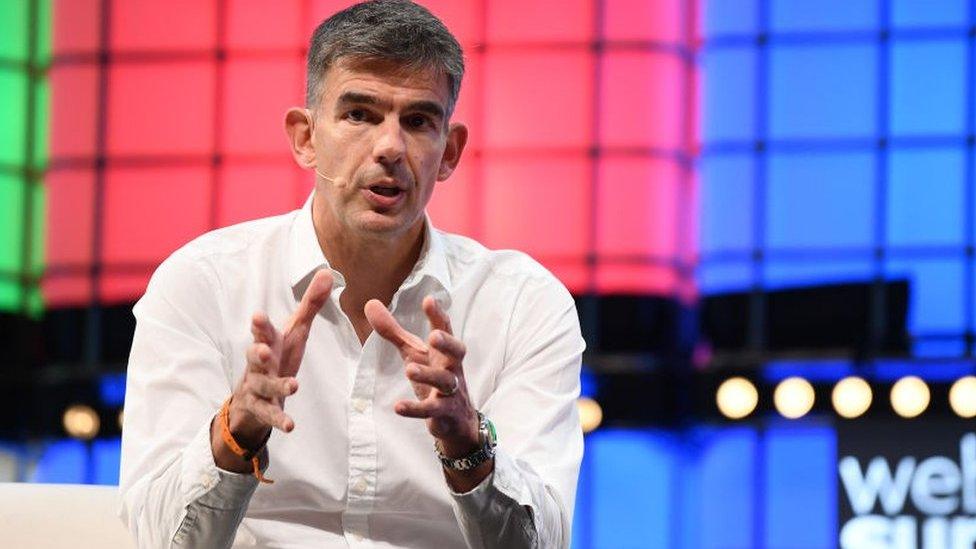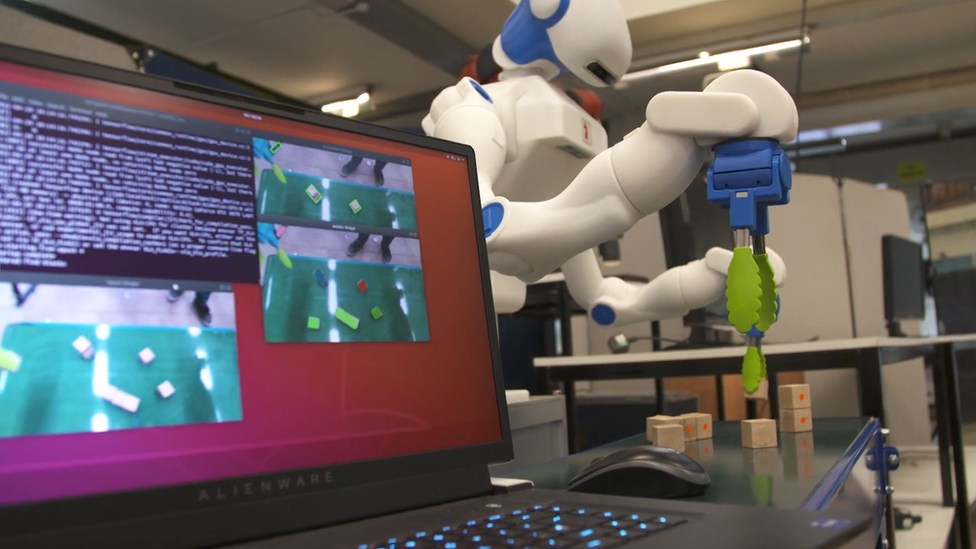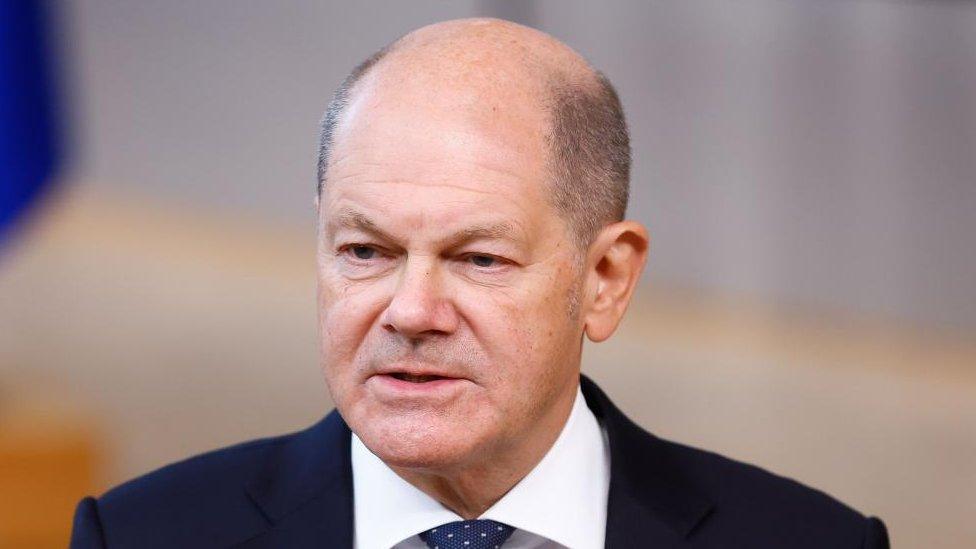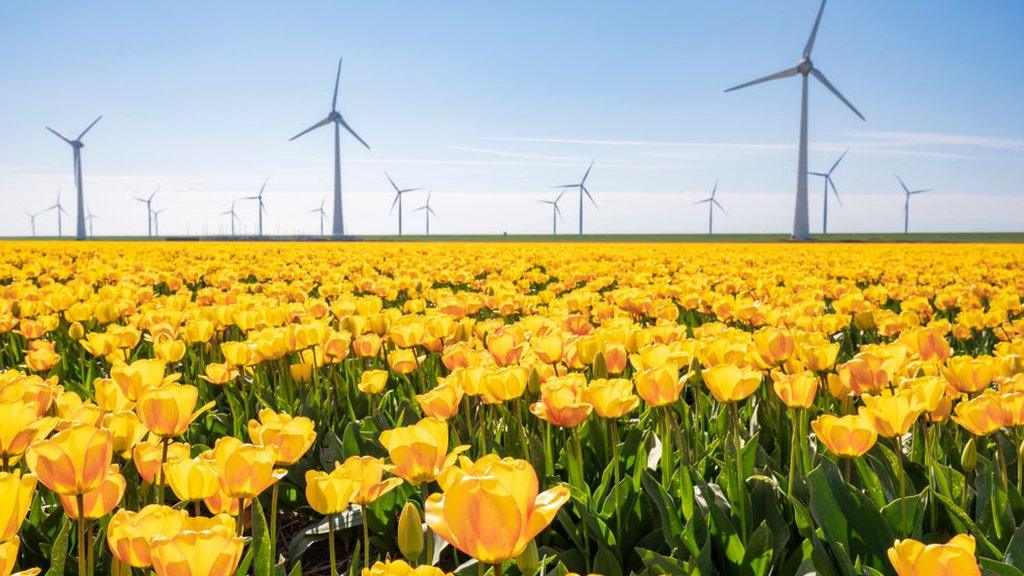Google boss: AI too important not to get right
- Published
- comments

Google's Matt Brittin, pictured in 2018
Artificial Intelligence (AI) technology is "too important not to get right", a top Google executive has told the BBC.
It has the potential for "huge breakthroughs" across industries, said Matt Brittin, president of Google for Europe, the Middle East and Africa.
There has been a long-running global debate about the risks and rewards of AI.
Mr Brittin was speaking as Google agreed a joint research partnership with the University of Cambridge.
As part of it, the tech giant will provide a grant for the university's new Centre for Human-Inspired AI, where academics and scientists from Cambridge and Google will come together.
The long-term agreement will focus on a number of areas including robotics, healthcare and climate change.
The partnership comes ahead of the UK's AI safety summit at Bletchley Park, at which the government hopes some of the biggest names in the industry will convene.
It has been prompted by an intensifying debate about the potential benefits of AI - and attempts by regulators in multiple countries to devise regulations for the rapidly advancing field.
"If we get it right, there could be huge breakthroughs in health, the potential for unlimited, clean energy, and a society where everyone has opportunities through education and powerful, intelligent tools.
"So this is a huge opportunity for us to do that," said Mr Brittin.
Vice president of research at Google DeepMind, and professor of information engineering at Cambridge University, Zoubin Ghahramani told the BBC the research the new centre would do could help address climate problems.

Robotics and AI research is already under way at Cambridge's Centre for Human-Inspired AI
AI tools have been used to optimise flight paths to reduce the amount of contrails - vapour trails left across skies by aeroplanes.
"It may not seem like an obvious use, but it is actually very valuable to address the impact of air travel," Prof Ghahramani said.
Mr Brittin said sustainability and solutions for addressing a climate crisis had been a long-term focus for Google and its AI arm, DeepMind, saying its research helped reduce energy consumption and costs in the tech giant's data centres.
"I joined the company in 2007, and that was the year we became carbon neutral - we became one of the world's biggest purchasers of renewables," Mr Brittin said, adding that Google's recent UK power purchase agreements will see services used in the country running on almost entirely carbon-free energy by 2025.
He also pointed to global projects such as sequencing traffic lights to reduce pollution, and using Google Maps to find fuel-efficient routes or the best place for solar panels.
Others, though, have raised concerns that the AI revolution Google is helping to fuel is causing great environmental damage, with one academic calling it "an enormous extractive industry for the 21st Century".
A recent study suggested the sector's explosive growth could soon see it use as much energy as a country the size of the Netherlands, leading its author to say AI should be used only where absolutely necessary.
Related topics
- Published17 October 2023

- Published10 October 2023

